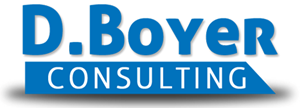Business is mostly conducted via email or phone communications.
Office hours 10:00 a.m. to 6:00 p.m, Mon. - Thurs., and 10:00 a.m. to 2:00 p.m. on Fridays.
SEND EMAIL INQUIRIES DIRECTLY TO:
Dawn.Boyer@me.com
Business is mostly conducted via email or phone communications.
Office hours 10:00 a.m. to 6:00 p.m, Mon. - Thurs., and 10:00 a.m. to 2:00 p.m. on Fridays.
SEND EMAIL INQUIRIES DIRECTLY TO:
Dawn.Boyer@me.com
Business is mostly conducted via email or phone communications.
Office hours 10:00 a.m. to 6:00 p.m, Mon. - Thurs., and 10:00 a.m. to 2:00 p.m. on Fridays.
SEND EMAIL INQUIRIES DIRECTLY TO:
Dawn.Boyer@me.com
Job Fairs – Still Useful to Attend – Part 1
November 15th, 2011 by Dawn Boyer
Are attending job fairs still useful for employers and job seekers in this electronic age of resume posting? (Part One – Advantages for Employers)
There are mixed feelings about whether job fairs are a ‘waste of time’ for employers or the job seekers nowadays. Job fairs are quite expensive for companies to attend, set up a booth, and send employees to man the booth. Companies are still attending job fairs, or conducting in-house job fairs, to look for qualified job candidates for current and future positions. Job seekers are getting the impression there isn’t any payoff for them. There are still advantages for both parties. I’ll break this down to three parts – one will list why employers still need to attend job fairs, the second and third in the series will list job seeker’s advantages.
Why do employers still attend job fairs in this electronic technology age? Companies now have online resume ATS (automated tracking systems) to handle recruiting efforts and the deluge of job applicants for advertised jobs. These electronic databases assist recruiters in finding the best applicant for a position based on key skill words and queries they perform on those words. But they still attend job fairs for several reasons:
- The employer is desperate to fill a position ‘yesterday’ and has loaded its guns with several managers to find a candidate and interview them immediately (meaning some employers might not be on a attending list, but get in last minute)
- Employers wish to get their list of job openings virally marketed. Hard-copy lists do get circulated by job fair attendees to friends, family, peers, and co-workers
- Branding the company, get their name ‘out there,’ become recognizable to future job applicants when the time comes to solicit for resumes and recruit for positions
- Giving attendees an idea of the type of people who work for the companies; provide warm fuzzies from those attending the job fair and visiting the company booth
- Recruiting for affirmative action to balance out gaps in AAP staffing and to document that the company has made efforts in recruiting those candidates
- To ‘resume farm’ for job openings in the future, even if not open or posted now, to encourage today’s job seekers to load resumes into the system for future consideration
- To ‘peek’ at other companies in the same business arena (industrial spying ‘lite’) to see what jobs are open or for which they are ‘resume farming’
- Employers may have already paid for the job fair booth months ago, and they don’t want to waste money they can’t get refunded (sometimes employers don’t bother showing up if it costs more to fly in a recruiter with no current jobs to fill)
- HR departments schedule a minimum number of recruiting activities annually, and job fairs may be on the list for currently funded events
Many job seekers are puzzled that employers no longer accept hard-copy resumes – especially in the defense industry. There is a law enforced by the OFCCP, EEOC, and DOL agencies driving this decision. Any hard copy resume accepted (in a job fair) is a ‘considered for hire’ candidate, whether qualified for the job or not, and thus EEOC information must be recorded and documented. What does this mean to the process? Companies circumvent the time-consuming, manual recording of candidate information by forcing job seekers to apply online where the information is automated, self-reported, provide easier to compile reports, and unqualified candidates can easily be disqualified in the system with a toggle of a button.
Copyright, 2005, Dawn D. Boyer
Readers Comments
Job Fairs – Still Useful to Attend – Part 1
November 15th, 2011 by Dawn Boyer
Are attending job fairs still useful for employers and job seekers in this electronic age of resume posting? (Part One – Advantages for Employers)
There are mixed feelings about whether job fairs are a ‘waste of time’ for employers or the job seekers nowadays. Job fairs are quite expensive for companies to attend, set up a booth, and send employees to man the booth. Companies are still attending job fairs, or conducting in-house job fairs, to look for qualified job candidates for current and future positions. Job seekers are getting the impression there isn’t any payoff for them. There are still advantages for both parties. I’ll break this down to three parts – one will list why employers still need to attend job fairs, the second and third in the series will list job seeker’s advantages.
Why do employers still attend job fairs in this electronic technology age? Companies now have online resume ATS (automated tracking systems) to handle recruiting efforts and the deluge of job applicants for advertised jobs. These electronic databases assist recruiters in finding the best applicant for a position based on key skill words and queries they perform on those words. But they still attend job fairs for several reasons:
- The employer is desperate to fill a position ‘yesterday’ and has loaded its guns with several managers to find a candidate and interview them immediately (meaning some employers might not be on a attending list, but get in last minute)
- Employers wish to get their list of job openings virally marketed. Hard-copy lists do get circulated by job fair attendees to friends, family, peers, and co-workers
- Branding the company, get their name ‘out there,’ become recognizable to future job applicants when the time comes to solicit for resumes and recruit for positions
- Giving attendees an idea of the type of people who work for the companies; provide warm fuzzies from those attending the job fair and visiting the company booth
- Recruiting for affirmative action to balance out gaps in AAP staffing and to document that the company has made efforts in recruiting those candidates
- To ‘resume farm’ for job openings in the future, even if not open or posted now, to encourage today’s job seekers to load resumes into the system for future consideration
- To ‘peek’ at other companies in the same business arena (industrial spying ‘lite’) to see what jobs are open or for which they are ‘resume farming’
- Employers may have already paid for the job fair booth months ago, and they don’t want to waste money they can’t get refunded (sometimes employers don’t bother showing up if it costs more to fly in a recruiter with no current jobs to fill)
- HR departments schedule a minimum number of recruiting activities annually, and job fairs may be on the list for currently funded events
Many job seekers are puzzled that employers no longer accept hard-copy resumes – especially in the defense industry. There is a law enforced by the OFCCP, EEOC, and DOL agencies driving this decision. Any hard copy resume accepted (in a job fair) is a ‘considered for hire’ candidate, whether qualified for the job or not, and thus EEOC information must be recorded and documented. What does this mean to the process? Companies circumvent the time-consuming, manual recording of candidate information by forcing job seekers to apply online where the information is automated, self-reported, provide easier to compile reports, and unqualified candidates can easily be disqualified in the system with a toggle of a button.
Copyright, 2005, Dawn D. Boyer














